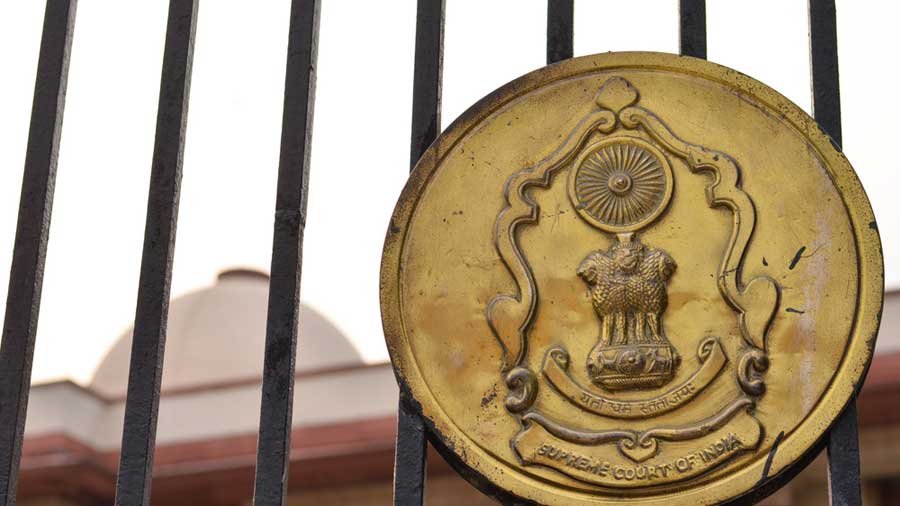A three-judge Supreme Court bench headed by Justice Arun Mishra will on Monday pronounce its sentence on advocate Prashant Bhushan, who was held guilty of criminal contempt of court on August 14 for two tweets on the judiciary.
The judgment is expected to be delivered between 10.45am and 11am. The court had reserved its verdict on August 25 after extensive arguments on the quantum of sentence.
Monday’s verdict could have a crucial impact on the citizens’ fundamental right to free speech vis-à-vis the judiciary’s own immunity from perceived contemptuous remarks that could lower its image in the eyes of the public and damage the majesty of law.
A large number of former judges, including ex-Chief Justice of India R.M. Lodha and Justice Kurian Joseph, civil liberties activist and various others have urged the apex court not to punish Bhushan for the tweets. Attorneygeneral K.K. Venugopal has advised the court to let Bhushan off with a reprimand or warning.
Bhushan has refused to tender an unconditional apology, as sought by the court, and defended his tweets as his “bona fide belief”. He has told the court that apologising would amount to committing “contempt of his conscience”.
Constitutional expert and Bhushan’s lawyer Rajeev Dhavan had during the hearings persisted with the plea for a lenient view, cautioning that the court would make a “martyr” out of Bhushan if it punished him for the social media posts. Dhavan had pointed out that the court should be open to criticism and said the judges’ “shoulders are broad enough”.
However, the bench of Justices Mishra, B.R. Gavai and Krishna Muraria, wondering “what is to be done”, had asked what would be the purpose of warning Bhushan if he believed he had done no wrong, observed that he had made several disparaging remarks against the judiciary and pointed to Bhushan’s stature and standing of 30 years, adding that his comments would have an impact on people.
Criminal contempt of court invites a maximum punishment of six months’ imprisonment and/or a fine.
Initially, advocate Mahek Maheshwari had filed a criminal contempt case against Bhushan over one of the tweets. However, on the basis of another tweet reported in the media, the Supreme Court converted the proceedings into a suo motu case by invoking its powers under Article 129 of the Constitution.
During the hearings, Bhushan had invoked Mahatma Gandhi and submitted that he would not seek any “magnanimity” or “mercy” from the court and was willing to submit himself to any punishment to uphold his bona fide beliefs. He had argued that he was neither a “cheerleader” nor a “courtier” of the Supreme Court.










